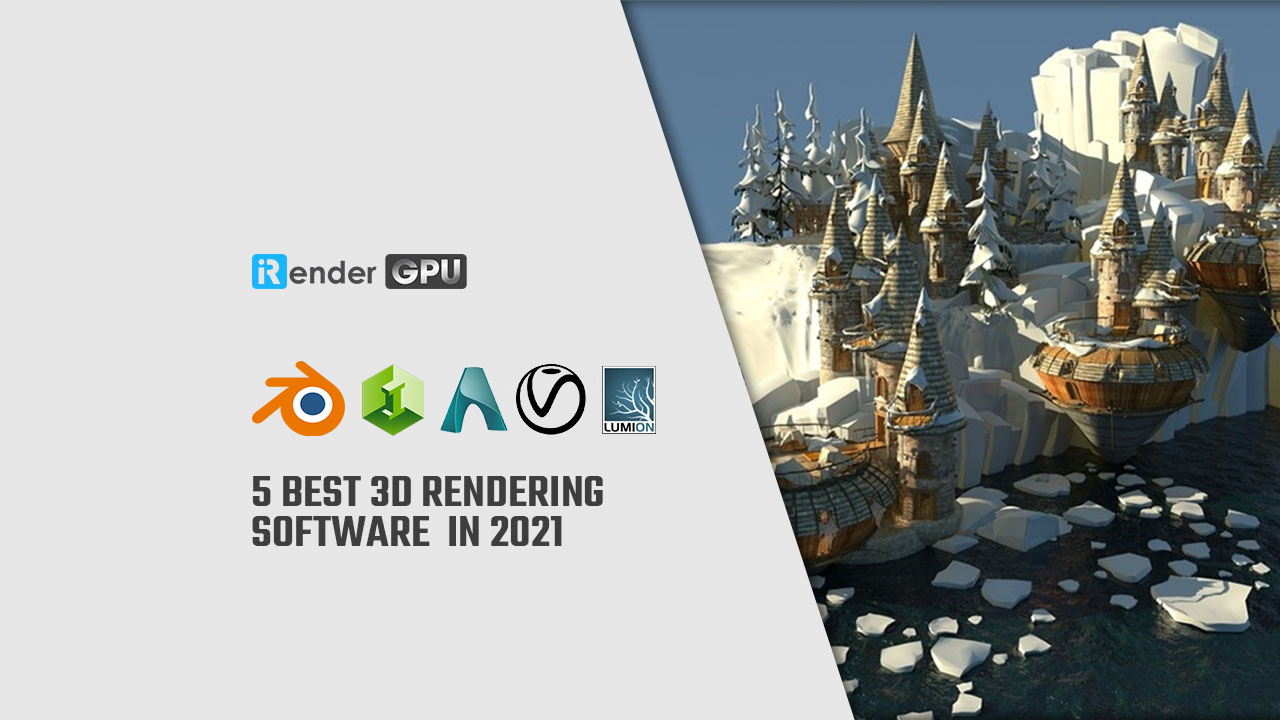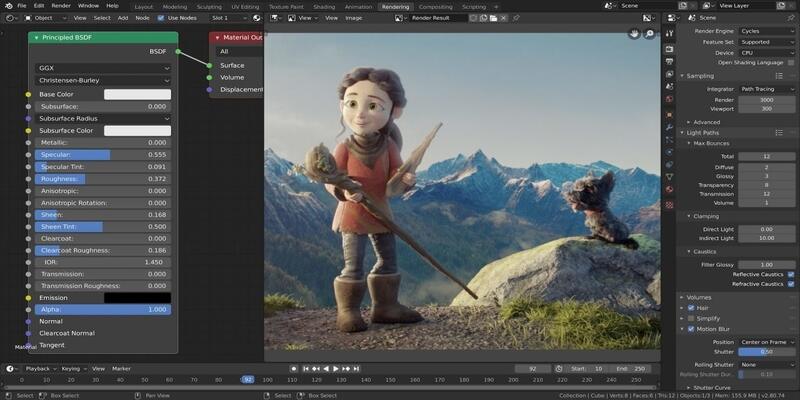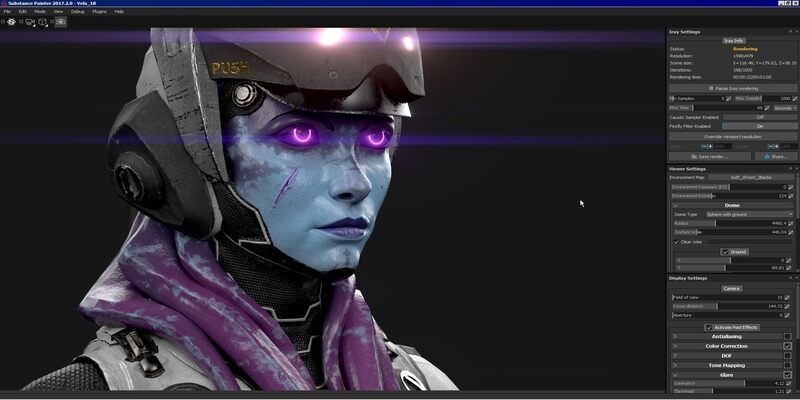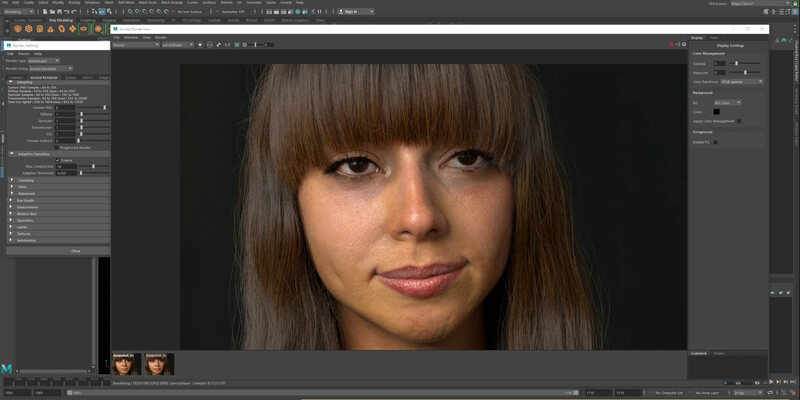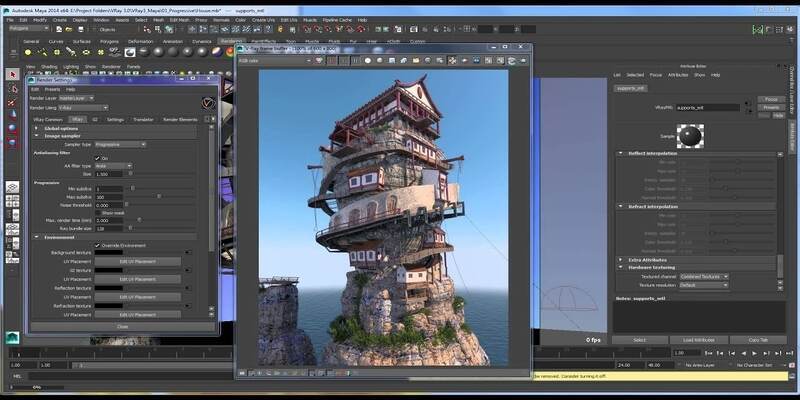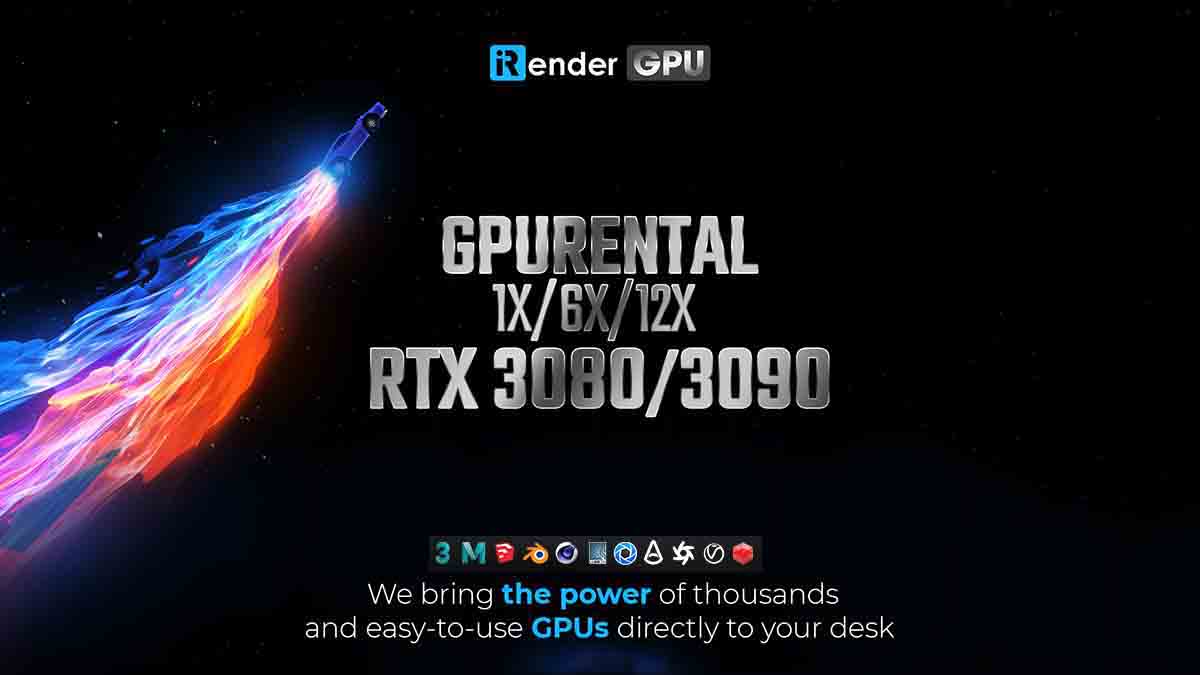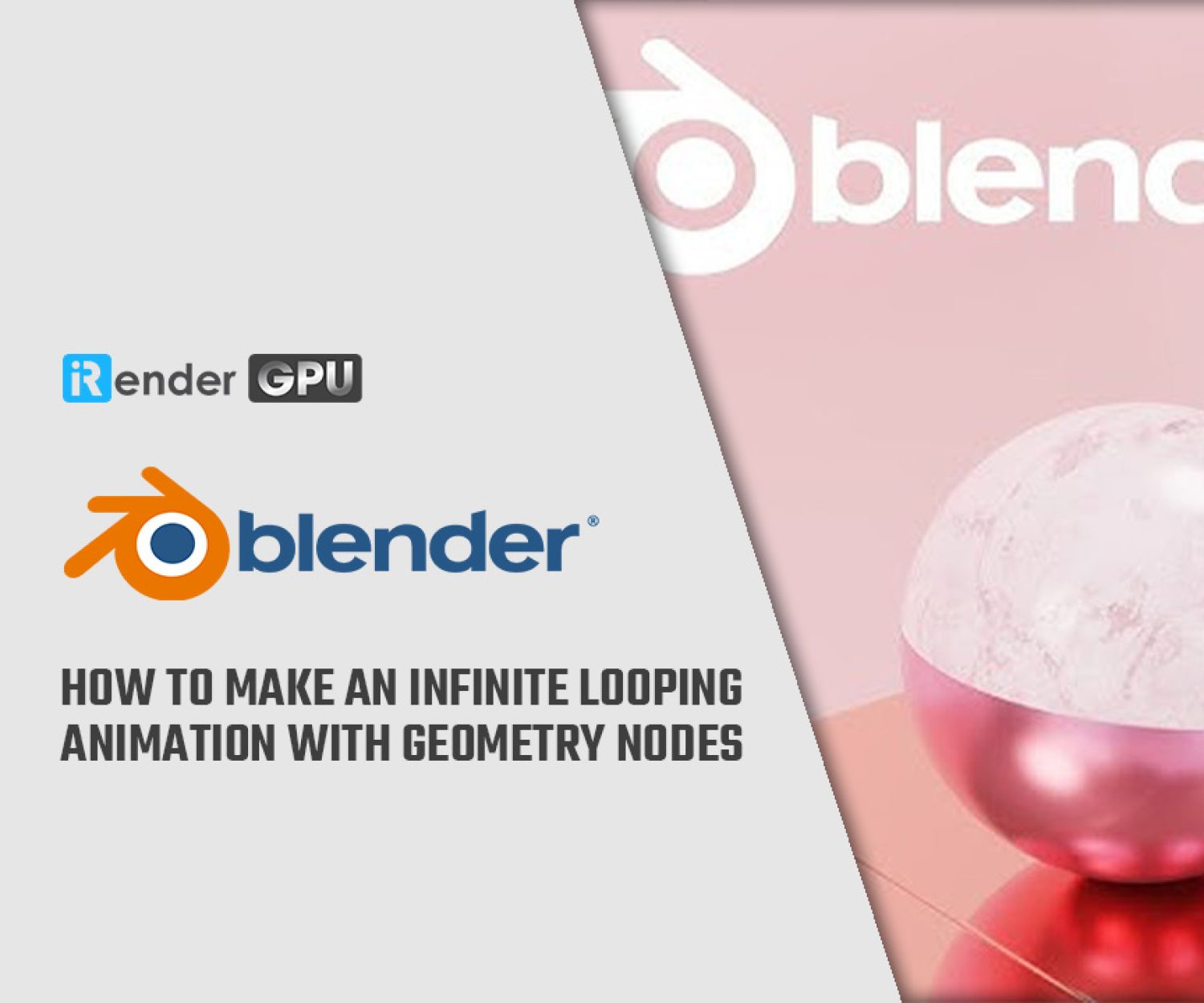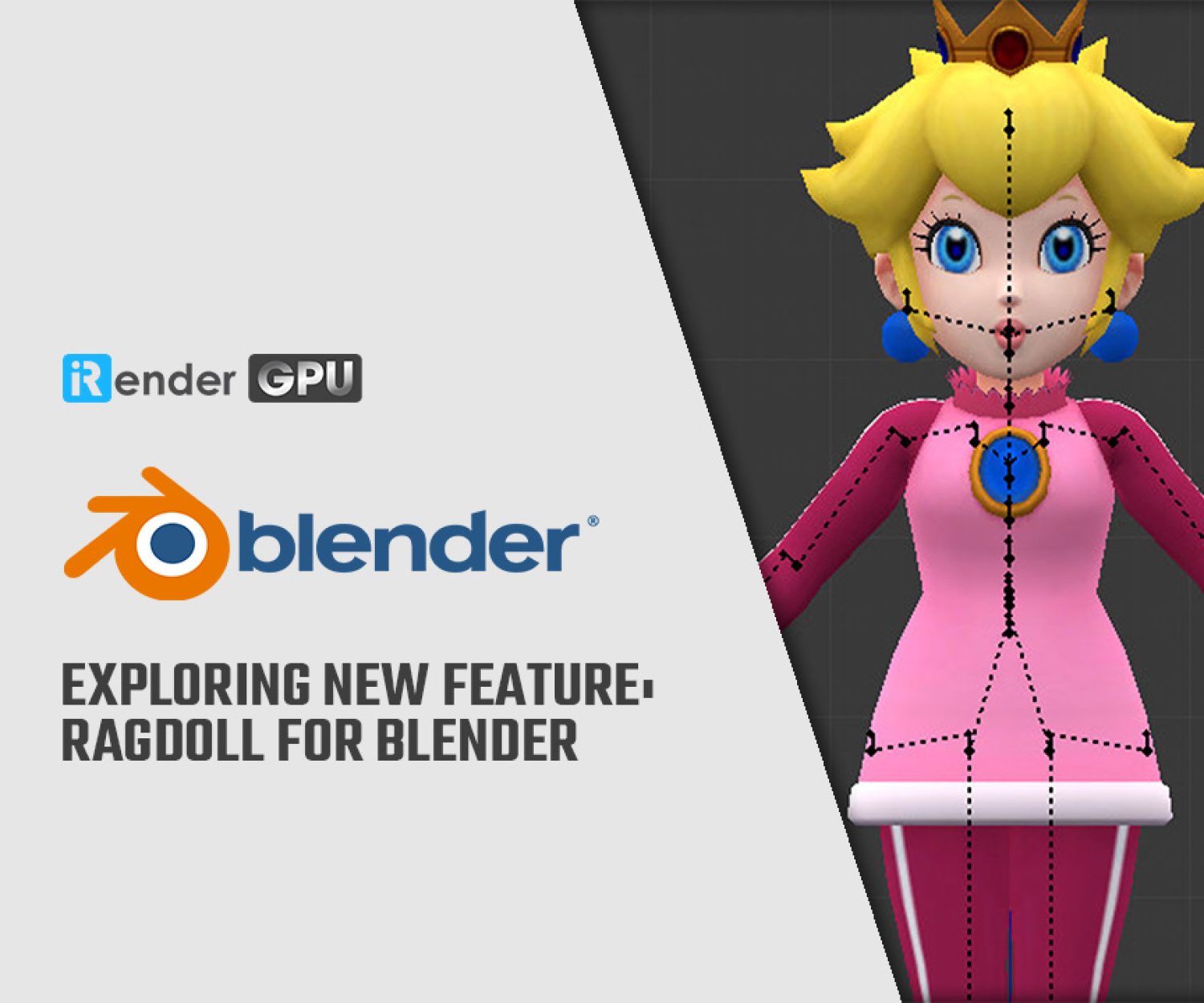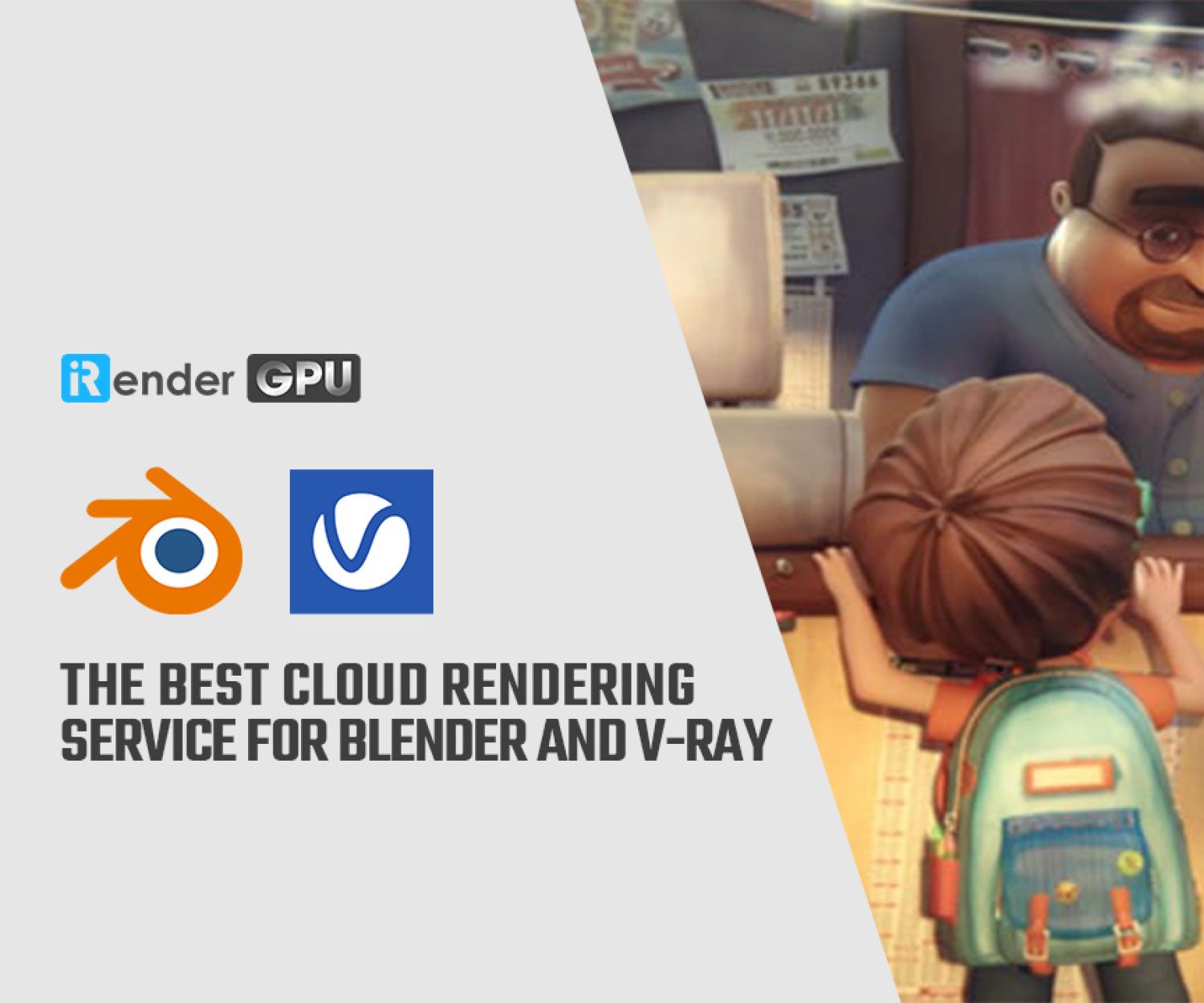5 Best 3D Rendering Software in 2021
The best 3D rendering software is a crucial tool for professionals across a huge range of industries – architecture, film and VFX, video games, automotive design, fashion – the list goes on. It allows users to take user-created 3D models and bring them to life in fully-realized 3D environments or images. There’s a wide variety of 3D rendering software solutions available, each being unique in their own way. So when it comes to choosing a 3D rendering software to use, you need to take a range of factors into consideration to make sure you pick the best one for you.
Are you looking for software that offers CPU rendering, GPU rendering or both? What rendering features do you need? What material types do you need? What 3D modeling and CAD programs is the rendering software compatible with?
In this guide, we reveal the best 3D rendering software available right now, covering both free and commercial solutions. We’ll take a look at the key aspects of each program to help you find the best 3D software for you.
1. Blender
You don’t need to break the bank to get your hands on top quality 3D rendering software. Blender is a free yet powerful and widely used software that’s a great option if you’re working on a budget. This software is a 3D creation suite that supports the entire 3D pipeline, including modeling, rigging, animation, simulation, rendering, compositing, motion tracking, and video editing.
This software has a powerful, unbiased rendering engine, known as Cycles, that offers incredibly realistic rendering. Some of the top features include real-time viewport previews, unidirectional path tracing with multiple importance sampling, PBR shaders and HDR lighting support, and VR rendering support.
Blender also offers both CPU and GPU rendering, with multi-core CPU rendering with SIMD acceleration, GPU rendering with NVidia CUDA and AMD OpenCL, multi-GPU support, and a unified rendering kernel for CPU and GPU.
This free 3D rendering software also scores high in terms of usability. The platform has an intuitive interface with various icons and interactive tools to help you get started, so it’s one of the easiest 3D rendering software to use and is a good choice for beginners. You can also customize workspaces to your liking.
As an open-source software, Blender users can make use of the program’s active community. There’s a news and blog section where you can keep up with the latest developments and the top projects, there’s a mailing list for educational resources, and there’s also the Blender manual, written by volunteers, which contains complete end-user documentation.
2. Iray
In oder to get this powerful renderer, user need to invest from $295 per year. Developed by NVidia, Iray is a biased GPU renderer that’s one of the best 3D CAD rendering software aimed at beginners, students and hobbyists who don’t have expert rendering knowledge, as well as professionals.
However, while it may be beginner-friendly, Iray’s quality shouldn’t be underestimated. This intuitive, physically based rendering technology uses AI denoising, CUDA, NVidia OptiX and Material Definition Language (MDL) to generate photorealistic imagery with great speed and efficiency, making it one of the most realistic 3D rendering software. To explain that in more detail, AI denoising is the use of Tenor Cores on the latest NVidia hardware to bring the power of deep learning to both final-frame and interactive photorealistic renderings. This speeds up the completion of final images and smoothes interactive rendering, producing a faster understanding of your scene’s composition and lighting.
NVidia MDL defines the property of material, from surface colors to the light emission of surfaces. This also includes surface geometric properties that aren’t usually modeled in the geometric description of surfaces, including displacements, bump maps and cut-outs.
Despite being a GPU renderer that’s developed for real-time usage scenarios, Iray also has many of the features typical of CPU solutions, including caustics, volumetrics, instancing and subsurface scattering. Iray is targeted at the architecture, engineering, construction, education, manufacturing and entertainment industries. It has been used in the design of several automotives and is one of the best 3D car rendering software, with the NVidia website covering some of the projects it has been involved in.
3. Arnold
Arnold is a high quality rendering software that’s developed by Solid Angle, a subsidiary of Autodesk. It has supported plugins for a number of top 3D modeling software, including Maya, 3DS Max, Houdini, Cinema 4D, Katana and Softimage. It costs $45 per month or $360 per year. This software was initially developed for the VFD studio Sony Pictures Imageworks and can be used to create just about anything you can imagine.
Arnold is based on a fast, CPU-based ray tracing render engine. This means it’s capable of real-time rendering, so that any changes you make during the process are automatically included in the calculations, speeding up the overall rendering process.
Arnold is commonly used in the movie and TV industries for its ability to efficiently compute light transport in CG scenes and support volumetrics to create stunningly realistic imagery. It has been used for CGI in Hollywood films such as Gravity, as well as in animated films like Monster House and Cloudy with a Chance of Meatballs. It was also used in the making of the popular video game The Witcher 3.
Another notable aspect of this top 3D rendering software is that its material editor is node-based. There are many presets available and more are constantly being added by the active user community, making for a more customizable and intuitive user experience. This is also a robust software capable of functioning smoothly even when using very large data sets.
4. V-Ray – Overall Best 3D Rendering Software
With the price $745 annually for V-Ray Collection version Developed by Chaos Group, V-Ray is widely regarded as one of the best 3D rendering software on the market and provides state of the art rendering solutions for film, VFX, architecture, automotive design, fashion, interior design, and other industries.
This top 3D rendering software uses a biased engine that includes both CPU and GPU+CPU hybrid rendering options. It uses adaptive ray tracing technology and proprietary scene intelligence to create incredibly realistic imagery that is almost indistinguishable from an actual photograph. It can also accurately calculate the distribution of light and the physical properties of any material.
This exceptionally high quality means that V-Ray is widely used by professional teams and has been used in the making of many Hollywood blockbuster movies, including Deadpool, Iron Man 3 and Exodus: Gods and Kings, which gives you an idea of just how powerful this software is. It’s even been used in the design of Nike Air Max sneakers!
Fortunately, its user-friendly interface, relatively low price, and various purchasing options mean it’s accessible to beginners and hobbyists. This 3D rendering and animation software software is compatible with most major 3D creation suites, including 3DS Max, Maya, Revit, SketchUp, Cinema 4D and Houdini. You can either purchase the Collection version that is compatible with all programs, or for a smaller cost you can purchase V-Ray licenses that are only compatible with certain other 3D software.
5. Lumion – Best Architecture & 3D Interior Rendering
Coming with higher price compared to others ($1,817 for the standard version, $3,636 for Lumion Pro), this render engine is still definitely worth for its great features. Lumion is a popular 3D rendering architectural software that’s fast, easy to use and allows you to turn 3D designs into images, videos and 360 panoramas – which you can view with VR glasses – in seconds.
This software is compatible with a range of CAD software, including popular programs like Autodesk Revit, ArchiCAD, 3DS Max, Vectorworks and Rhinoceros, so you can easily upload your architectural designs to the rendering program.
Lumion 3D rendering software offers a vast library of materials and objects, including materials, people, lighting, grass, skies, water, plants, cars and many more. You can also add a wide range of special effects. The software is capable of handling landscapes populated with thousands of these objects.
Conclusion
In the end, we hope that this article can give you some ideas of some render engines that are highly apricated and widely used on the market, from that you can find the one that suits you best regarding to its features and prices.
Besides, in today’s article, we also want to reveal to you one of the best cloud render solution that will help you to take full use of the power of these above rendering engines and boost your rendering time signigiciantly from ten to hundred times faster. It’s iRender Cloud Rendering Service.
We provides 4 types of server including single GPU servers (1 RTX 3090 and high clock speed CPU), double GPU server (2 RTX 3090), 6 GPU servers (6x GeForce RTX 2080 Ti / 6x RTX 3080/ 6x RTX 3090) and CPU servers as well. You can refer to our server specification and prices HERE. With these variable choices, you can pick out one server that suits you best and experience new level of rendering with the most affordable price.
Users will access to our web-based online platform and using multiple nodes to render at the same time. Hence, with us, it does not matter where you are present – as long as you are connected to the internet, you can access and enjoy the 24/7 rendering services that we provide, and if you meet any issue, our real human 24/7 support team is always ready to support you.
So, do not hesitate anymore, let’s HERE to get FREE COUPON to test our GPU servers and reach a new level of cloud rendering.
iRender – Happy Rendering!
Reference source: 3dsourced.com
Related Posts
The latest creative news from Redshift Cloud Rendering, Blender Cloud Rendering, 3D VFX Plugins & Cloud Rendering.

